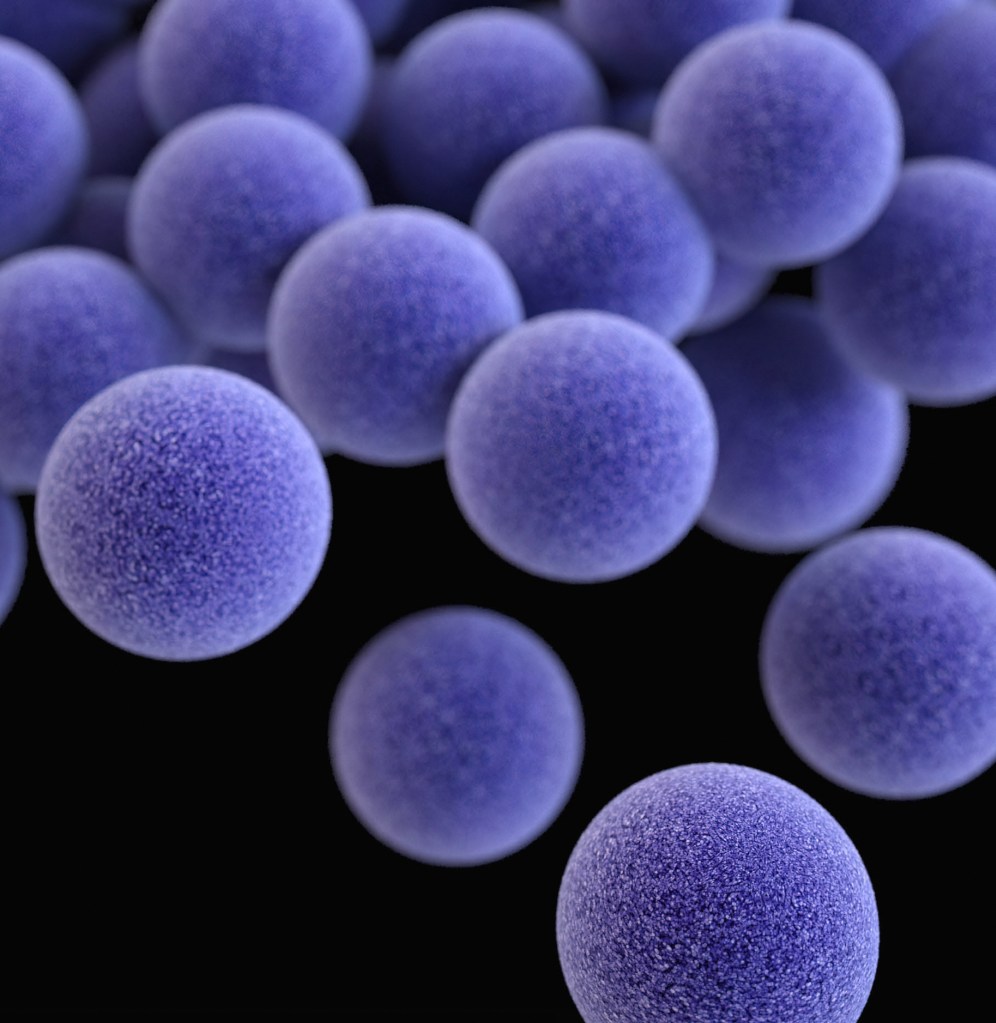From what I can tell, the loss of body odor following cancer chemotherapy isn’t widely acknowledged within the medical community, but it’s certainly something that many of us have experienced.

Based on what I’ve read, this might be a result of the weedwhacking effect that chemo drugs have on our microbiomes. Regardless, the result has been positive for those of us who find that we don’t have to worry about being smelly.
However, I happened to catch an interview on National Public Radio (aka NPR) that helped make more sense of what was actually going on, even though it was a bit of a killjoy. Listen to it here, where you can also find a full write-up of the piece.
Basically, that sweaty stink that we find repugnant is from a compound produced by bacteria living on the skin. One species of these bacteria that’s associated with an onion-like odor is Staphylococcus hominis.

And unfortunately, these smelly microbes are very beneficial, helping protect humans from things like eczema and MRSA (antibiotic-resistant Staphylococcus aureus). As one of the researchers puts it, sweat is an “antibiotic juice” that forms a protective layer on our skin as it dries.
Yeah, I know what you’re thinking: cancer is miserable enough, and you HAD to take away this one little thing (loss of body odor) that was the only perk to chemo?
Well, as mentioned above, I’m not qualified to definitively say that it’s the chemo that kills the skin microbes and makes you not smell. I’ve been unable to find research studies that examine the effects of chemotherapy on your skin’s microscopic residents. Nonetheless, I’ve tried to contact the researchers mentioned in the NPR story to see if they’ve had any experience with chemotherapy and loss of body odor in cancer patients. If they reply, I’ll report back to you.
For now, if you’re happy being odorless, keep enjoying it.







